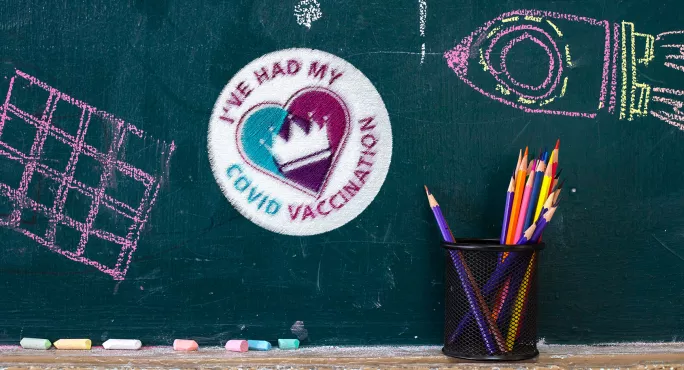What education can learn from medical science to boost outcomes

I remember when I heard about the first successful vaccine trial results and the relief that we had a vaccine against Covid-19.
For those of us working in public health, it was an even greater relief because we were all too aware of how long a vaccine usually takes to arrive - if it ever does.
Two years on, we can see the impact vaccine technology has had on our lives.
The growth of research in education
Trials, and the pipeline of development that led to the vaccine, have long been used in medicine; in education, though, they have arrived as part of the system more recently.
The Education Endowment Foundation and others have led to a sea change in the volume and quality of trials conducted in England, as well as rigorous piloting and independent evaluation.
Evidence from trials, from England and abroad, are part of the evidence underpinning the early career framework and initial teacher training’s core content framework, both of which are key parts of England’s teacher training landscape.
Aligning the solution to the problem
Of course, though, there are always questions about how much context matters when translating evidence from trials into recommendations.
Context may refer to the type of school or the parts of the country where the research was done.
In medicine, we might imagine those equivalent characteristics are what is most relevant, such as the age of the participants in the trial relative to the general population.
But I believe that misses the big picture.
Of overwhelming importance to whether a treatment will be effective is whether the disease being targeted is the same as the disease for which it was proven to work in the trial.
An aspirin won’t cure an ulcer, a statin can’t prevent a cold.
A vaccine is what we need in the midst of a pandemic, but a Covid-19 vaccination will not stop you from getting the flu.
Vaccinating the country against smallpox would not improve life expectancy, even though (and because) it was able to eradicate the virus outside of labs.
Effective use of evidence from trials is all about this process of matching solutions to problems. Figuring out the problem is often the first step.
Clinicians, some of the best-paid people in the medical system, spend much of their time doing just this: working out what a patient needs and then prescribing treatments that have worked before in addressing similar needs.
Doctors use all manner of information to do this, including careful questioning, observation, theory-based reasoning, reflecting on their experience, and speaking with their mentors.
What education needs to remember
I believe the importance of clinical diagnosis in medicine has been underappreciated in sectors hoping to follow medicine’s example as to how to be more evidence-based. Context really does matter.
An intervention is only going to work if it is the solution to the problem that a child is facing.
Effective teachers already know this, but my sense is that it has been forgotten in how we talk about evidence in education.
It is worth remembering that teachers have been effectively educating people for a lot longer than doctors have been effectively healing them.
As such, the job of those of us in education is to support better diagnosis and find more effective solutions. Evidence should empower teachers in this critical role.
What we want to achieve
The National Institute of Teaching is about supporting teachers through research and professional development.
We are working with teachers, led by schools, to deliver evidence-based education that truly puts teachers at its heart.
We want the way we work with teachers, especially our training programmes, to itself be evidence-based. This is not a trivial task by any means.
For one thing, training, like teaching, involves people interacting with each other, and as soon as that is part of the process then the possibilities for what can happen become almost endless.
Not only are we dealing with the complexity of minds, such as we are when using cognitive science to inform pedagogy, but we’re inviting multiple minds to interact over time, creating ever more possible - and potentially exciting - outcomes.
Large-scale research, including randomised controlled trials, matters, but it is research in the hands of an empowered clinician or a teacher that has the power to change lives.
Calum Davey is the executive director of research and best practice at the National Institute of Teaching and a member of the Education Endowment Foundation Evaluation Advisory Group. He is also an assistant professor at the London School of Hygiene and Tropical Medicine
You need a Tes subscription to read this article
Subscribe now to read this article and get other subscriber-only content:
- Unlimited access to all Tes magazine content
- Exclusive subscriber-only stories
- Award-winning email newsletters
Already a subscriber? Log in
You need a subscription to read this article
Subscribe now to read this article and get other subscriber-only content, including:
- Unlimited access to all Tes magazine content
- Exclusive subscriber-only stories
- Award-winning email newsletters
topics in this article



